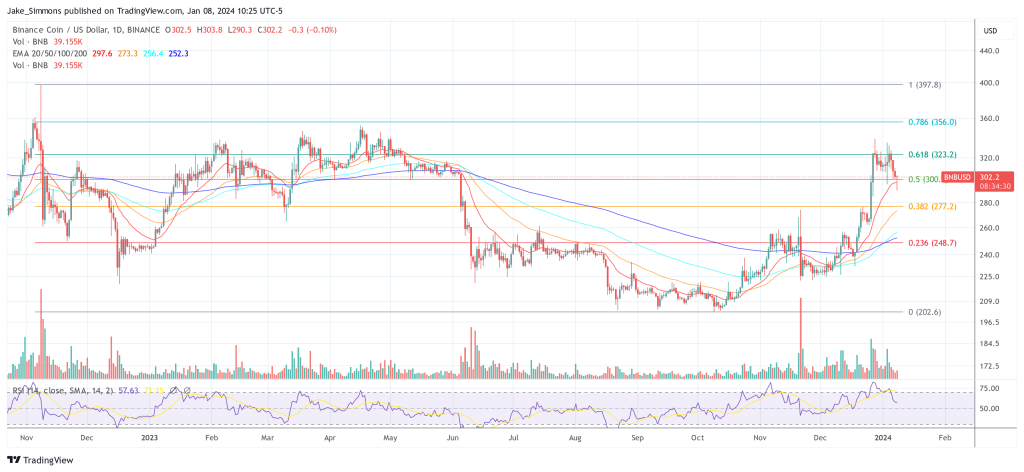- January 8, 2024
- Posted by: admin
- Category: BitCoin, Blockchain, Cryptocurrency, Investments
Binance, the world’s preeminent crypto exchange, has published its fourteenth Proof of Reserves (PoR), offering a detailed glimpse into its reserves as of January 1, 2024. This latest disclosure comes at a time when trust and transparency are pivotal in the crypto industry, especially in the aftermath of major upheavals like the FTX collapse.
The recent PoR, leveraging the zk-SNARKs verification mechanism and conducted at BTC Block Height 823629, reveals significant holdings across major cryptocurrencies, including Bitcoin (BTC), Ethereum (ETH), Binance Coin (BNB), Tether (USDT), BUSD, USD Coin (USDC), Litecoin (LTC), XRP, among others. The report shows an overall robust growth in user assets, a potential confidence booster for investors and users.
Binance’s Proof Of Reserves: Are All Assets Fully Backed?
Binance’s PoR system aims to assure that the exchange holds sufficient reserves to back user assets on a 1:1 basis, along with additional reserves. This system is critical for ensuring users’ assets are fully backed, especially in the event of financial downturns. The exchange’s corporate holdings are maintained on a separate ledger and are not included in this PoR.
Binance utilizes a combination of Merkle trees and zk-SNARKs to provide a transparent and verifiable reserve proof. A Merkle Tree is a cryptographic tool that consolidates large data sets into a single hash, allowing users to verify specific contents within the data set. zk-SNARKs, a proof protocol, enables the exchange to prove the inclusion and accuracy of individual user balances in the reserve calculations without revealing specific details.
Users can independently verify their account balances as part of the PoR. By logging into the exchange and accessing their wallet verification section, users can view their Merkle Leaf and Record ID, confirming their inclusion in the third-party auditor’s attestation report. The PoR shows, among others
- BTC Ratio: 103.79%, with customer net balances at 575,852.891 BTC and Binance net balances at 597,658.074 BTC.
- ETH Ratio: 106.56%, showing customer net balances of 4,002,782.994 ETH and Binance net balances of 4,265,238.882 ETH.
- USDT Ratio: 123.20%, with customer holdings at 16.855 billion and Binance holdings at 20.766 billion.
- BNB Ratio: 106.04%, with customer net balances at 31.999.106,454 BNB, Binance net balance at 33.932.195,889 BNB
- USDC Ratio: 117.88%, with customer net balances at 740.598.563,358 USDC and Binance net balance at 872.983.723,394 USDC
- XRP Ratio: 104.26%, showing customer net balances of 2.743.502.067,169 XRP and Binance holdings at 2.860.446.327,208 XRP
Criticisms And Trust Issues
This report follows a tumultuous year 2023, marked by legal challenges and scrutiny. In 2023, the exchange agreed to pay a $4.3 billion fine to settle lawsuits with US regulators and faced allegations of co-mingling user and corporate funds. Richard Teng, CEO, emphasized the company’s commitment to compliance, citing a $213 million investment in their compliance program.
Despite Binance’s efforts to increase transparency through monthly PoR releases, critics argue that these reports lack the thoroughness of a full independent audit. Furthermore, the exchange, which lists over 350 digital assets, only publishes PoRs for 31 of them. This selective reporting, coupled with the withdrawal of Mazars, the company initially contracted for these reports, has fueled skepticism about the credibility of the reserve claims.
At press time, BNB traded at $302.20.
